Islamic Jihad Leadership In Gaza Destroyed - Israeli PM
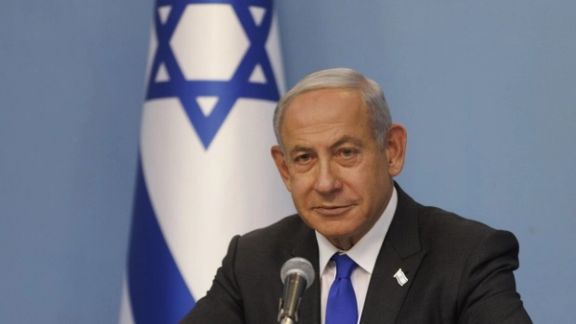
Israel’s prime minister says his forces have eliminated virtually the entire leadership of Tehran-backed Islamic Jihad in Gaza.

Israel’s prime minister says his forces have eliminated virtually the entire leadership of Tehran-backed Islamic Jihad in Gaza.
Benjamin Netanyahu told his cabinet on Sunday: “We changed the equation thwarting the entire top echelon of the Islamic Jihad in Gaza."
Netanyahu commended the success of the operation "Shield and Arrow" in the Gaza Strip during the meeting.
As part of the operation, which lasted almost five days, the Israeli military killed several Islamic Jihad commanders and targeted strategic positions and weapons stocks.
A ceasefire was agreed between Israel and the Palestinians on Saturday evening, and came into effect at 11 p.m. It has so far been respected.
Netanyahu did not mention the ceasefire. However, according to The Times of Israel, National Security Adviser Tzachi Hanegbi thanked Egyptian President Abdel-Fattah el-Sisi for facilitating the agreement.
Washington welcomed the ceasefire agreement on Saturday, thanking Egypt and Qatar for their efforts.
The latest round of confrontation did not involve Hamas, and only Iran's main ally, the Islamic Jihad took part.
Iran urged Hamas to join Islamic Jihad in the new round of attacks following the killing of three militants in Gaza, Iran International had learned.
According to informed sources, Tehran exerted strong pressure on Hamas to repay assistance it has received over the years, and unite with Islamic Jihad to launch a fresh wave of attacks.
During the conflict, the terror group fired nearly 1,300 rockets, including about 1,000 rockets that hit Israeli territory. Two people were killed in Israel and 33 killed in Gaza.
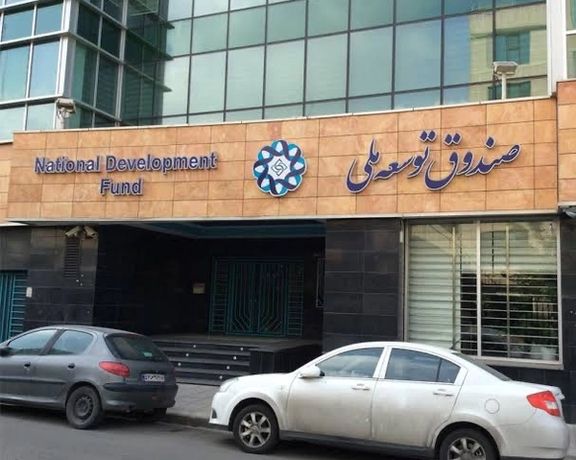
Iran has spent most of its national sovereign wealth fund in the past decade or so amid sanctions, the chairman of the national inspectorate said Sunday.
In the third annual gathering of officials to discuss the National Development Fund (NDF), the chairman of the National General Inspection Organization, Zabiollah Khodayan finally came up with general but clear figures about what the fund represents.
The fund collected $150 billion over the years from saving a portion of Iran’s oil export revenues, but successive governments dipped into the fund and spent $100 billion, while another $40 billion “was borrowed” by state entities, Khodayan said. So, in short, Iran has only $10 billion saved, which is negligible compared with other oil-exporting countries.

In contrast, the United Arab Emirates has more than one trillion dollarssaved in several sovereign wealth funds, an even Oman, the poorest of Persian Gulf oil exporters has $17 billion.
Khodayan argued that the main reason why NDF has not been successful is lack of transparency by the government. While governments dip into the fund to finance their deficits or projects, the public is usually kept in the dark.
Since its establishment in 2000 as a currency reserve to supplement the Oil Stabilization Fund, successive governments dipped into the NDF for current spending, including the withdrawal of billions of dollars for military spending. The administration of President Mahmoud Ahmadinejad (2005-13) borrowed heavily from the fund, which contained $24 billion when he was elected, even though Iran earned an estimated $700 billion from oil exports during his presidency.
This was the highest amount the country had earned during 100 years of oil production. The populist president withdrew $2.7 billion to pay New Year cash handouts to all Iranians in 2013.
In the last three years of Ahmadinejad’s presidency, Iran’s oil exports declined because of international sanctions imposed to force Tehran to accept limits to its nuclear program. After a brief respite in 2016-2018 when the JCPOA nuclear deal was in effect, the United States imposed fresh sanctions in 2018, which slashed oil exports by as much as 90 percent in 2019-2020.
This brief overview of the past shows that although sanctions had a major role in limiting the growth of Iran’s sovereign wealth fund, financial and budgetary mismanagement has also played a role. Otherwise, with saving 20-30 percent of oil export revenues since 2000 should have made the fund worth at least $250 billion.
Another factor is the inefficiency of Iran’s state-controlled economy, which has made the state largely dependent on crude oil exports to finance government budgets.
Khodayan in his remarks also argued that wealth funds should not be considered as instruments for stabilizing the foreign currency markets. He was referring to efforts by successive Iranian governments to dip into the fund to defend the ever-declining national currency, rial. From Ahmadinejad’s time, the rial has declined 50-fold from 10,000 rials to the dollar to more than 500,000.
Although sanctions were the main reason for the disastrous performance of the national currency, capital flight in the past 15 years has played a major role. Government officials have indicated that capital flight has been well over $10 billion a year.
Both Iran’s inefficient economy and its constant confrontation with the United States and its allies eroded investor confidence, which led to people investing in other countries.
Khodayan also complained that although NDF has lent $40 billion for various projects, it has no control over how the money is spent. “The fund has no role in studying projects that receive financing. Also, the Central Bank fails to properly manage eight foreign currency accounts holding the funds.”

A French citizen released by Iran after three years in jail on trumped-up spying charges is “very weak”, his family have revealed.
President Emmanuel Macron announced on Friday that Benjamin Brière is going free along with fellow Frenchman Bernard Phelan.
The two men are among an unknown numbers of diplomatic hostages held by the regime.
In a statement on Friday, Briere’s family spoke of being able “to hold him in our arms after three years of hell," but added: “He is, however, very weak, physically and morally, a return to normal life will be long and certainly difficult, but now he is in good hands."
A lawyer for Briere said he had become “extremely weak and frail” after a hunger strike, adding: “If the release wouldn’t have happened by now, Benjamin would be at a major life risk.”
Macron tweeted: "We will continue to work towards the return of those of our fellow nationals who are still detained in Iran."
Brière had been held in Iran since May 2020. The traveller and blogger was arrested for allegedly taking photos with a drone in a restricted area near the Turkmenistan-Iran border and sentenced to eight years in jail.
Philippe Valent, his France-based lawyer, called the espionage charges against his client a "fiction" and his trial "a parody staged by the Revolutionary Guard".
Ties between France and Iran have deteriorated in recent months. Tehran had detained seven French nationals in what Paris described as arbitrary arrests equivalent to state hostage-taking.
In the past decade, Iran's Revolutionary Guard have arrested dozens of dual nationals and foreigners, mostly on unproven allegations of espionage and breach of security.
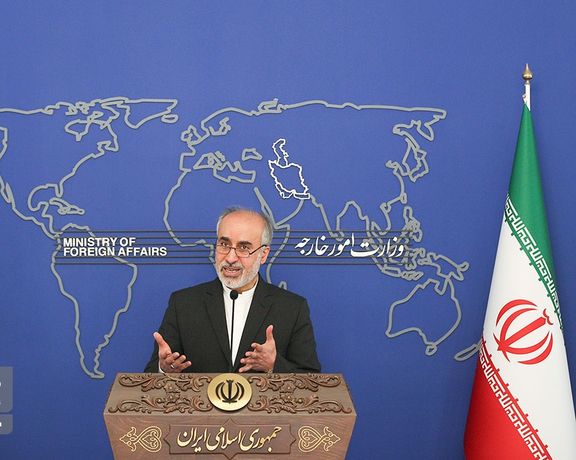
Iran has summoned Iraq’s ambassador in protest at the presence of what it brands “terrorist” Kurdish groups at an official ceremony.
The diplomatic spat exposes tensions between the neighbouring states despite a security deal both signed last month over Kurdish attacks on Iran.
On Saturday Iranian Foreign Ministry Spokesman Nasser Kanaani said Baghdad’s envoy to Tehran had been summoned to “strongly protest” over the presence of Iranian-Kurdish opposition groups at the event on Thursday in Iraq’s Kurdistan region.
The ceremony had been held to inaugurate a cultural center in tribute to the late Kurdish leader Mustafa Barzani.
The spokesman said “movements of some terrorist groups” in the Iraqi Kurdish region is “contrary to the recent security agreement between the Islamic Republic of Iran and Iraq”.
Although the groups were not named, Iran may be referring to Kurdish armed groups such as the Democratic Party of Iranian Kurdistan.
The party advocates the overthrow of Iran's regime and the separation of Kurdistan's northwestern province from Iran.
A deal with Iraq was signed last month in Baghdad by Iran's security chief Ali Shamkhani that aimed to end "completely and fundamentally" Kurdish attacks on Iran and prevent the use of Iraqi borders as a threat.
Last year, Iran's Revolutionary Guards launched missile and drone attacks against Iranian Kurdish groups based in northern Iraq, accusing them of fomenting protests that were sparked by the death of an Iranian Kurdish woman, Mahsa Amini, in the custody of the morality police.
Kurdish parties − including Komala and the Kurdistan Democratic Party of Iran (KDPI) − generally favor Kurdish autonomy within a federal Iran. However, Pejak (the Free Life Party of Kurdistan), an affiliate of the Kurdistan Workers’ Party, or PKK, formed in Turkey but also based in northern Iraq, wants a unified, independent Kurdistan uniting Kurds in Syria, Iraq, Turkey, and Iran.
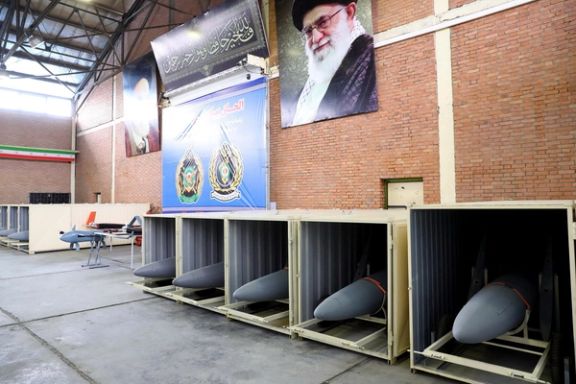
Iran has been accused by Ukraine’s president of selling more than 1,000 drones “and other weapons” to Russia.
Volodymyr Zelensky revealed the extent of Tehran’s sanctions-busting support for Putin's invasion of Ukraine in an interview with Italian media on Saturday.
Ukraine’s leader said: “Thanks to the sanctions, the number of missiles they [the Russians] produce has decreased several times. However, there are such challenges as Iran which has sold them [Russia] more than 1,000 Iranian-made drones and other weapons.”
Forces of the Russian Federation began using drones in its attacks against Ukraine's infrastructure last fall, temporarily depriving millions of Ukrainians of heating, water and electricity during the winter.
Iran first denied it had supplied drones to Russia but in early November foreign minister Hossein Amir-Abdollahian admitted the deliveries, while claiming they were sent before the Russian invasion.
Recent intelligence reports suggest that Tehran may be planning also to supply long-range missiles to Russia.
Ukraine says its air force has shot down more than 500 Iranian drones so far, figures confirmed by Western intelligence.
Iran’s supply of drones to Russia for use in its war on Ukraine has been condemned by the US and its NATO allies and met with sanctions by the US, European Union and other states.
Washington has halted talks with Tehran aimed at resurrecting a deal over Iran’s nuclear programme, indicating that it expects the Islamic Republic’s deliveries to Putin to stop before any further negotiations take place.

A leading reformist politician in Iran says a combination of Iran's weakest government and parliament has created “a regrettable situation for the country.”
Mohammad Javad Haghshenas, a prominent member of the reformist National Trust Party says the situation is like a fire under the ashes. Decision-makers in the Iranian government simply ignore the underlying reasons for last year's nationwide protests and attribute the crisis to the "enemies."
He also suggested that President Raisi should resign and call for early elections.
Haghshenas warned that "any moment, another mistake like what happened in September and led to the death in custody of Mahsa Amini, or a new problematic policy can lead to a new crisis and new waves of protest."
He pointed out that ignoring popular demands and the protests that are still continuing, as well as problems such as inflation, financial corruption, economic problems, red tape, government's intervention in people's private lives and the inefficiency of the government bureaucracy can deepen the ongoing crises.
He added that one of the ways out is returning to the Constitution, which is a document the nation agrees on. However, a major part of the Iranian opposition, and even former high-ranking officials, believe that the current Constitution, designating clerical rule, is one of the root causes of Iran's problems. Many among the opposition want a return to the 1905 constitutional monarchy and others want a secular, democratic republic.
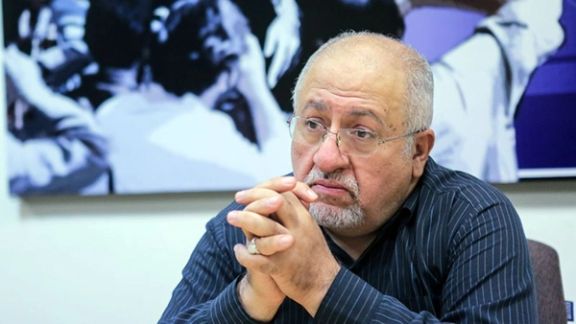
However, Haghshenas says the hard core of political power in Iran [meaning Supreme Leader Ali Khamenei] should pave the way for upholding the Constitution by September particularly because a parliamentary election is going to be held in March next year. He also pointed out that none of the crises that have led to major protests since 2019 have been resolved. Meanwhile, he suggested that Raisi should resign and call for an early Presidential election.
He also suggested that the Guardian Council should do away with its selective supervision of vetting candidates before elections. The Council, a constitutional body indirectly controlled by the Supreme Leader, has the power to disqualify candidates for no clear reason. It used its power in the 2020 parliamentary and 2021 presidential elections to bar hundreds of candidates many of whom had previously served as lawmakers or as senior officials. The result was a massive rejection of ‘reformist’ candidates and handing full control to hardliners.
Meanwhile, Mansoor Haghighatpur, a moderate conservative lawmaker close to Ali Larijani the former Speaker of the parliament charged that a certain political group [meaning the ultraconservatives] want to run the country with a team of only 30 to 40 individuals.
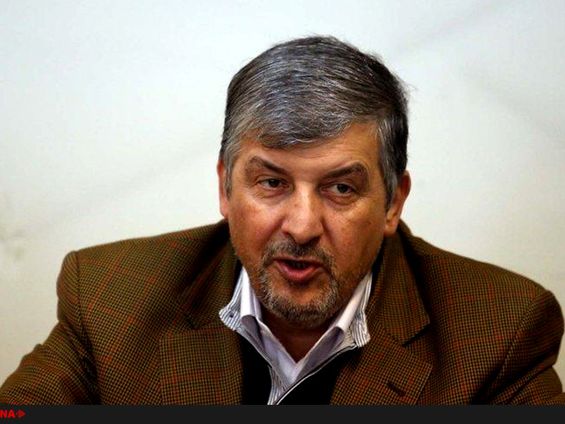
Haghighatpur further charged that the ruling group only believes in its own members and considers other politicians as traitors and spies. His comment followed accusations of espionage against former President Hassan Rouhani and his aides and IRGC figurehead Hossein Taeb's call for putting Rouhani on trial.
He said that this group of 30 to 40 ultraconservatives came to the forefront of political leadership since former populist President Mahmoud Ahmadinejad came to power in 2005 and lately took over the entire political establishment after the 2020 and 2021 elections.
In another development, Iranian traditional conservatives flagship daily newspaper Resalat wrote on Saturday that President Ebrahim Raisi’s administration does not understand concepts such as inflation and repayment of loans. The daily told Raisi and his ministers: "Your daily journey starts from the parking at your home and ends in the parking lot of your office and you do not know anything about the people's problems."
Resalat added: "As a result, you constantly ridicule the people and subsequently the people turn their backs on you." The daily was referring to a statement by Raisi's Welfare Minister Solat Mortazavi who when asked last week how low-paid workers can make ends meet, he replied: “They should save!" Resalat called the minister's reaction "an outcome of ignorance."